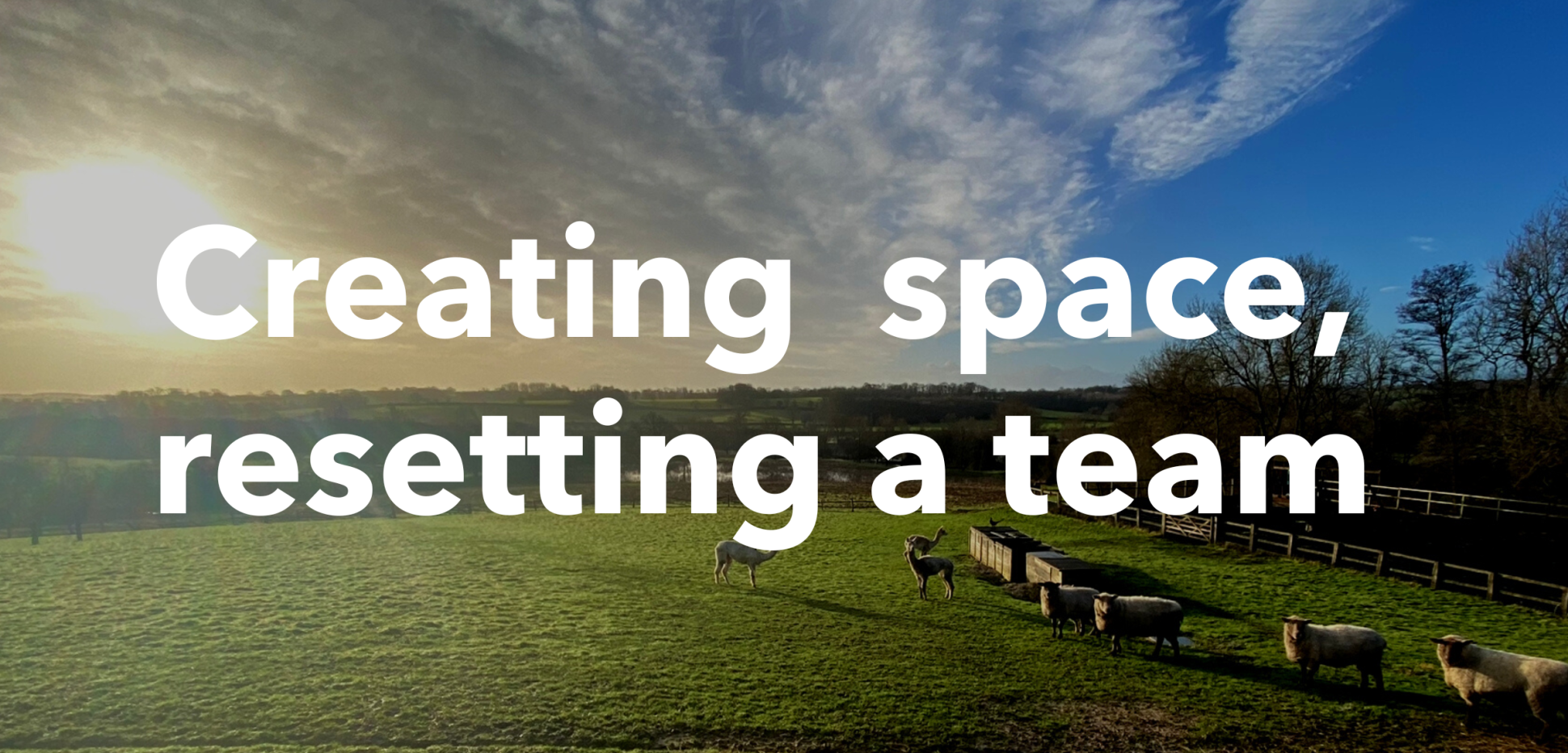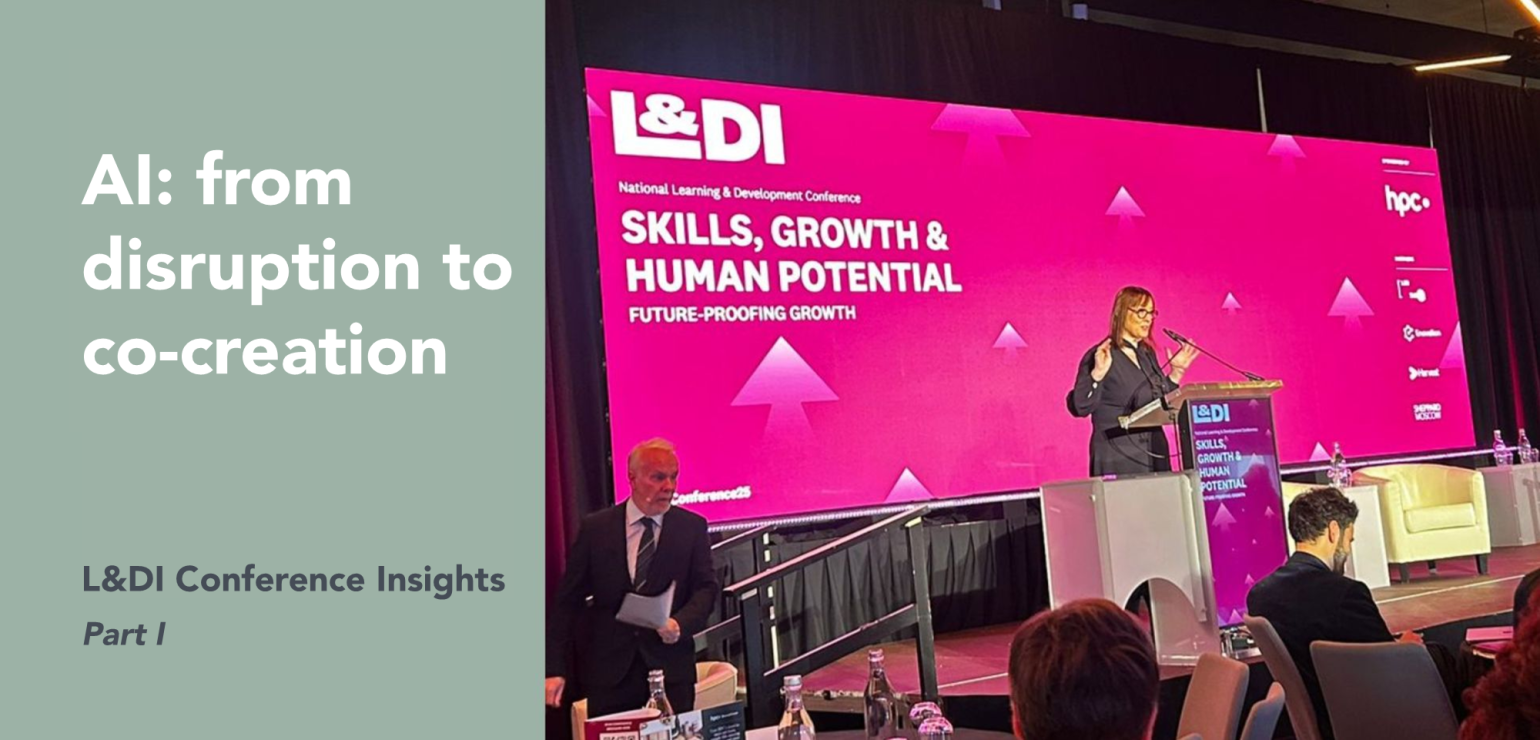Teams, retreats and shared experience

Many practices informing organisations about change - ranging from Lewin’s ‘Unfreeze, change, refreeze’ to Otto Scharmer’s Theory U - comment on the importance of ‘letting go’. That the release of old habits, behaviours and mindsets is required to allow new thinking to emerge - or, as Otto Scharmer puts it ‘letting come’.
Indeed, even more spiritually inclined frameworks such as the Celtic Wheel talk about a period of stillness and fallowness to make room for what is ‘wanting to emerge’. But how can leaders create the right conditions and time for busy teams to do that? How can they make the space to let new thinking emerge? We can’t all simply stop meeting client requirements or delivering on projects.
Our Sheppard Moscow team gathered for a Team Retreat earlier this month and considered this question. As with many of our clients - our team has been trying to make sense of a more hybrid world now, which is neither 100% virtual nor face to face. We have new folks who joined us during the pandemic and have never spent time with the Sheppard Moscow collective in a physical environment.
We needed a ‘reset’ moment for the team; to allow new members to experience a new dimension of being a part of Sheppard Moscow, and to allow the team to change shape and reform in our new configuration.
So, we took ourselves off to a rustic location in the Kent countryside where we were able to cook for ourselves, sit by the fire and take care of each other as well as being able to discuss our business around a big farmhouse kitchen table. It was a deliberate intention to have a more human environment rather than an overly corporate hotel setting.
Additionally, we were very intentional about keeping the agenda light but purposeful. This was so important and something that I know I personally find very difficult when designing team interventions for clients. The temptation to pack multiple items into busy agendas always looms large. This can feel risky and I know I can ben hooked by the notion that we don't want to waste time and the need to help the client get maximum value from being in the room together; but inevitably this leads to having to fend off requests for ‘can we just have half an hour on ‘X’ topic?’. My learning was that you really need to allow space to have the 'Big Conversations'.
We then took time to listen, really listen, to each other to hear the different felt experiences of what working as a team had been like over the last few years. We used a timeline white paper exercise - a common tool to generate a shared understanding of multiple perspectives. And then we talked, got curious and just made space for what needed to emerge.
We were also keen not to drive headlong into ‘what actions must we take now’ but rather to see what inspired people, what generated the most energy and to allow natural momentum to surface two or three things that would make the biggest difference for us.
Despite having no concrete actions to speak of, I have come away with a few significant insights and am inspired to give these my attention over forthcoming weeks.
But what made the most difference for me was ‘being, together’ not just ‘being together’. Yes, you read that right - the comma is intentional. We realised that by making space and time to cook, share stories and hang out together we really saw each other as humans. We deepened our sense of each other’s perspectives and experiences in a way that made us much more able to connect in a more authentic way.
I came away feeling nourished and refreshed and fully committed to our community; a feeling I know others share. It will help me maintain that community spirit as we inevitably revert back to working from kitchen tables and home desks. It will also help me overcome the natural ‘oh I don’t need to go into the office today’ inertia as I know the immense value of investing in the community both for my own sake and for the wider good.
In summary these are the 3 key lessons I learned on our team retreat and I would encourage any leader to pay attention to:
- Less is more: do not over pack the agenda with tasks or topics. Allow the space for the various discussions to breathe and to hear everyone’s input. Focus on outcomes rather than actions…seek to inspire and engage people to do things differently rather than getting people to commit to ‘doing stuff’.
- Two sleeps: try and get everyone away from the office to somewhere that feels different and enables a different way of experiencing each other. Stay two nights but do not set evening work! So much of the heavy lifting happens in the ‘spaces in between’ when folks are socialising together.
- Listen: take time to listen to everyone and allow all perspectives to be heard and explored. If people feel seen and heard they will feel valued, and anything is possible after that. They follow the energy that emerges from those conversations as this will be more motivating and create momentum for follow up.
To read more about Teams:
Your senior team's collective imperative, as senior teams facing ongoing challenges, it is key to focus on the collective and working as one.
Nothing complex or subtle can happen in an organisation without teamwork. Teams, at the heart of organisational effectiveness

 Deborah Gray
Deborah Gray 
 Aoife Keane
Aoife Keane 
